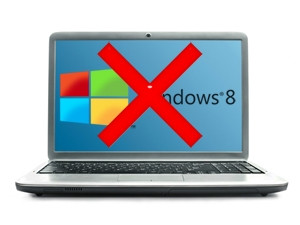
Only 0.53% of enterprise computers that use the Windows operating system run on Windows 8, according to data by software solutions company SysAid.
The company's IT Performance Benchmark reveals that, as of April, six months after the release of Windows 8, less than 1% of enterprise computers run on Windows 8.
In comparison to the same period after the release of Windows 7, the IT Benchmark indicates 11.3% of enterprise computers were running Windows 7, out of the 11.68% of Windows' total market share.
Israel Lifshitz, founder and chairman of SysAid, says statistics from Net Applications also showed that in April, Windows 8 had a usage share of 3.84%.
"However, our IT Benchmark data demonstrates that the majority of Windows 8 implementations are by consumers and not by enterprises," says Lifshitz.
He adds that while it is clear that Windows 7 was a highly-anticipated release, businesses are not at all eager to adopt Windows 8. "It will be interesting to see if the upcoming Windows 8.1 launch will be attractive enough to increase adoption among enterprises."
Successor's shadow
According to Net Application's statistics for May, Windows 7 has 44.8% of the desktop operating system market share, Windows XP comes in second with 37.7% and Vista takes fourth place with 4.5%. Windows 8 has the lowest market share of products in the Microsoft stable, with just 4.2%.
Although Windows XP's market share declined from 38.3% in April, it still has a hefty segment of the market and is set to still be in use when Microsoft's support deadline kicks in on 8 April next year.
Tech analyst Liron Segev says businesses and consumers used to fall into a trap where they simply had to upgrade to the newest version of Windows when it came out. "We did that with Windows all along and we did that with Office all along, so you are just constantly upgrading. But if you look at the features, there are lots of companies that are quite happy to run with XP and Office 2003, and they are not missing out on anything."
Upgrading hopes
Keeping a close eye on the market and consumers, Microsoft has developed an upgrade for Windows 8 for desktops and laptops. With the release of Windows 8.1, or Windows Blue as it's more commonly known, Microsoft is bringing back the Start button.
Windows 8.1 also has adjustments to its search function, allowing users to search for documents, apps and items on the Internet from one search bar.
The upgrade will be free and made available to all Windows 8 users later this year. Developers will have the chance to put 8.1 through its paces when Microsoft showcases a test version at its developer conference at the end of the month.
Segev says Windows 8 came in with a rough start and it was unfairly judged because it was such a big learning curve. "But I think that people have now settled in, and with Windows 8.1, what I think a lot of businesses will do, is skip Windows 8 altogether and go to a more stable platform with the second release."
The updated version of Windows 8 will place it in direct contention with Apple's rumoured Mac OS X 10.1, which is believed to be inspired by its mobile counterpart, iOS.
Apple is expected to reveal more details about its operating system upgrade, as well as the new MacBook Pro and MacBook Air at its developer conference next week.
Segev says innovation on the operating system front has reached a stagnation phase. "There isn't that wow factor of switching something on and experiencing something that you never had before. One will have one feature and the next one will have a similar feature with a left-click instead of a right-click."
But he adds that while there is a lot of hope that Windows 8.1 will be slicker, better and faster, there is no indication it will have the 'wow' factor. "We can surely expect enhancements but not anything revolutionary, in my opinion."
Share